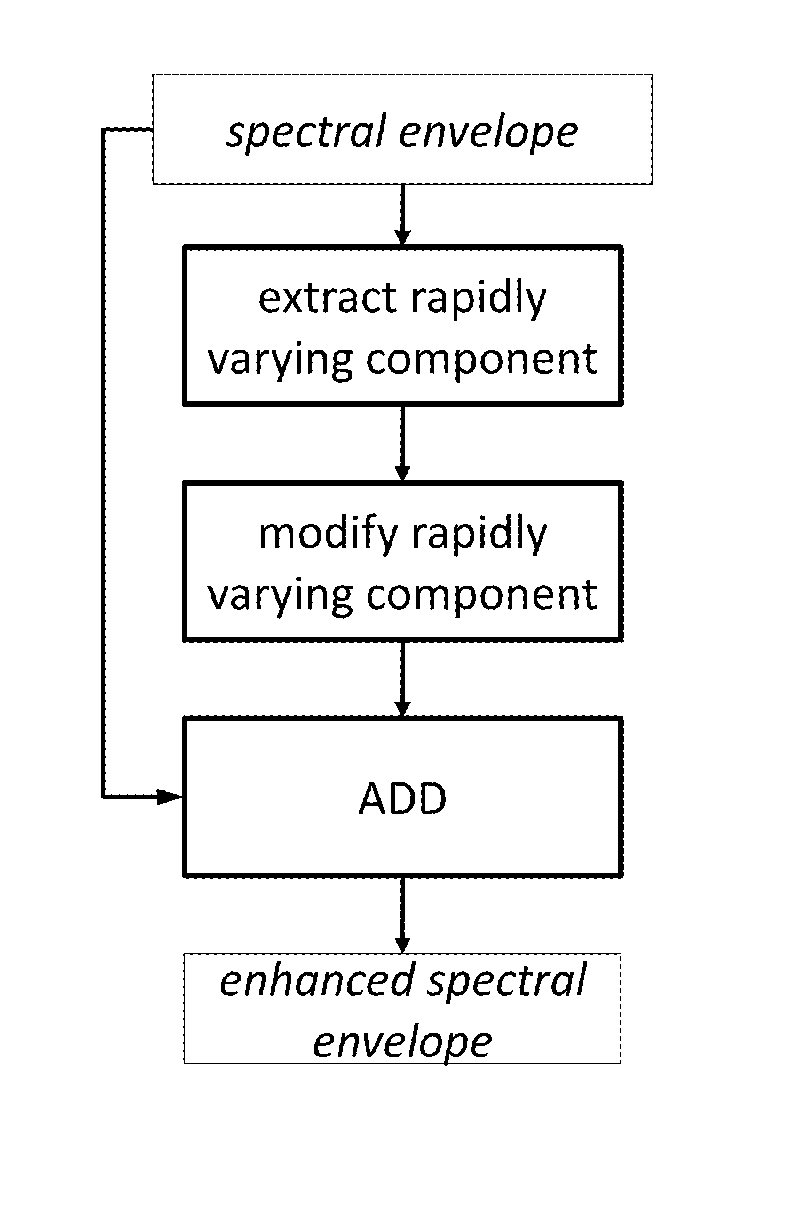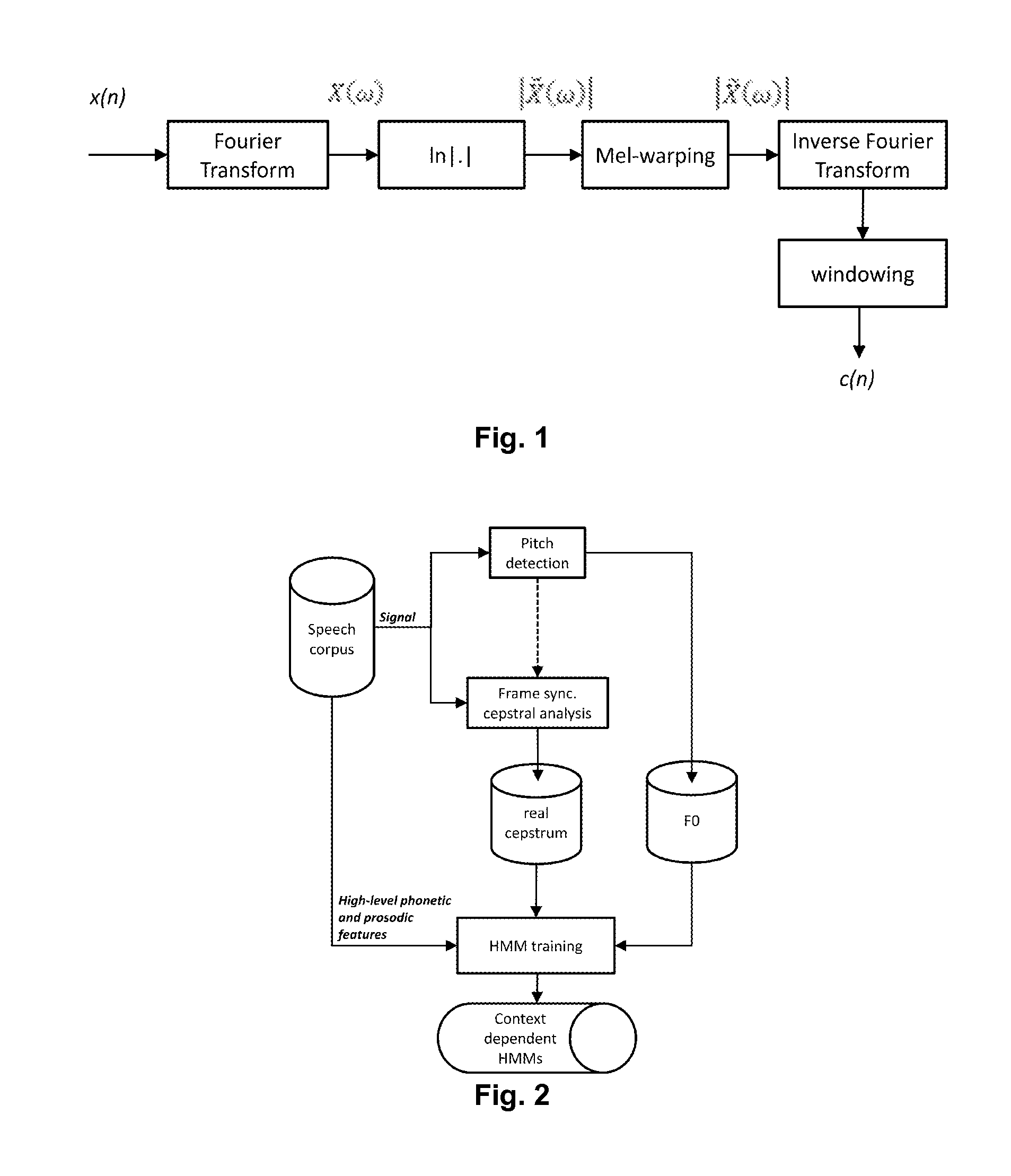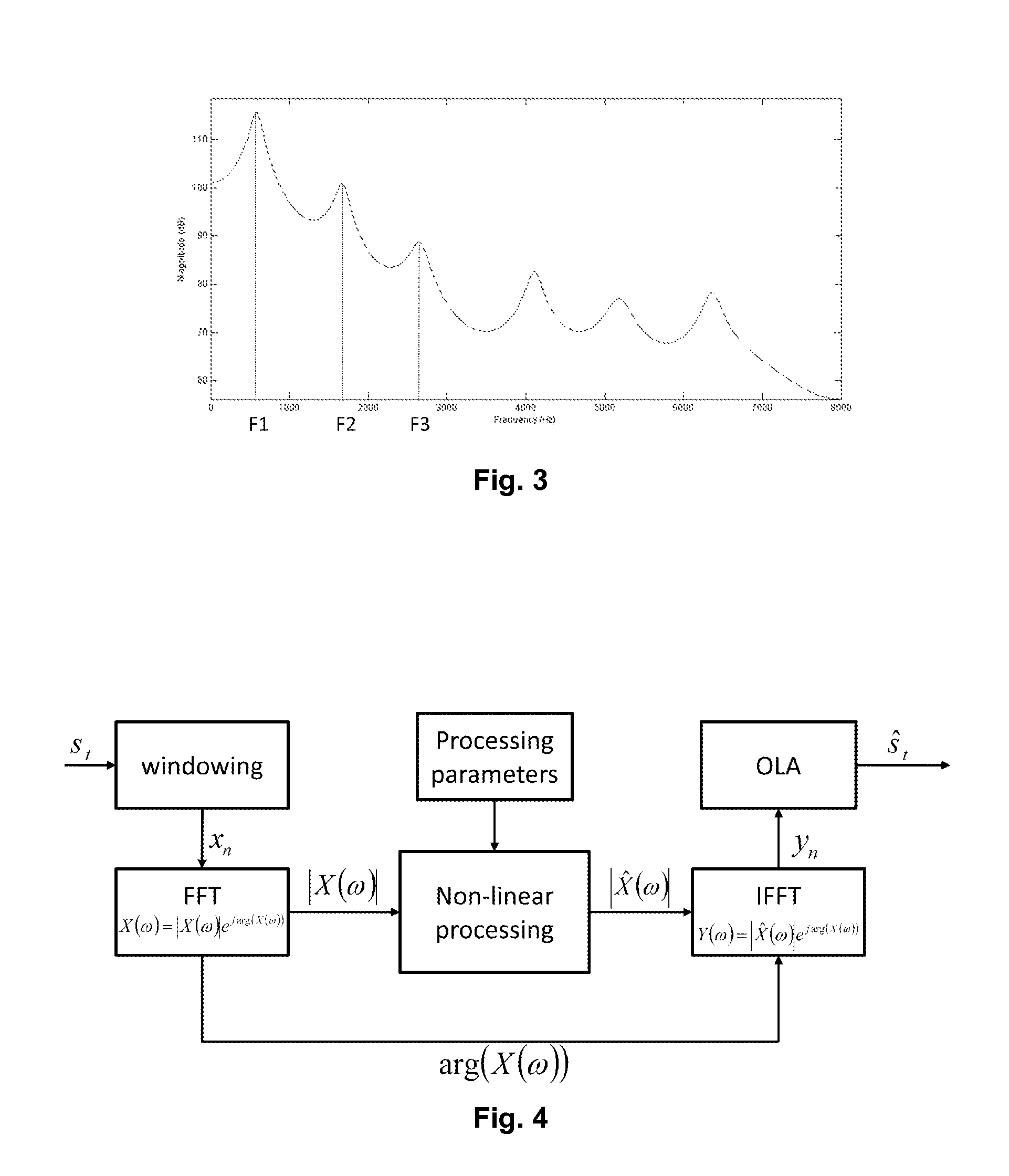Speech enhancement techniques on the power spectrum
a power spectrum and enhancement technology, applied in the field of speech synthesis technology, can solve the problems of speech description vector lossless representation, technique does not allow for selective formant enhancement, short-time speech representations can also have lossless representations, etc., to improve improve signal quality, improve the effect of at least one out of controllability, and improve the effect of spectral magnitude and phase processing techniqu
- Summary
- Abstract
- Description
- Claims
- Application Information
AI Technical Summary
Benefits of technology
Problems solved by technology
Method used
Image
Examples
Embodiment Construction
System Overview
[0100]FIG. 5 is a schematic diagram of the signal generation part of a speech synthesiser employing the embodiments of this invention. It describes an overlap-and-add (OLA) based synthesiser with constant window hop size. We will refer to this type of synthesis as frame synchronous synthesis. Frame synchronous synthesis has the advantage that the processing load of the synthesiser is less sensitive to the fundamental frequency F0. However, those skilled in the art of speech synthesis will understand that the techniques described in this invention can be used in other synthesis configurations such as pitch synchronous synthesis and synthesis by means of time varying source-filter models. The parameter to waveform transformation transforms a stream of input speech description vectors and a given F0 stream into a stream of short-time speech waveforms (samples). These short-time speech waveforms will be referred to as frames. Each short-time speech waveform is appropriate...
PUM
 Login to View More
Login to View More Abstract
Description
Claims
Application Information
 Login to View More
Login to View More - R&D
- Intellectual Property
- Life Sciences
- Materials
- Tech Scout
- Unparalleled Data Quality
- Higher Quality Content
- 60% Fewer Hallucinations
Browse by: Latest US Patents, China's latest patents, Technical Efficacy Thesaurus, Application Domain, Technology Topic, Popular Technical Reports.
© 2025 PatSnap. All rights reserved.Legal|Privacy policy|Modern Slavery Act Transparency Statement|Sitemap|About US| Contact US: help@patsnap.com



